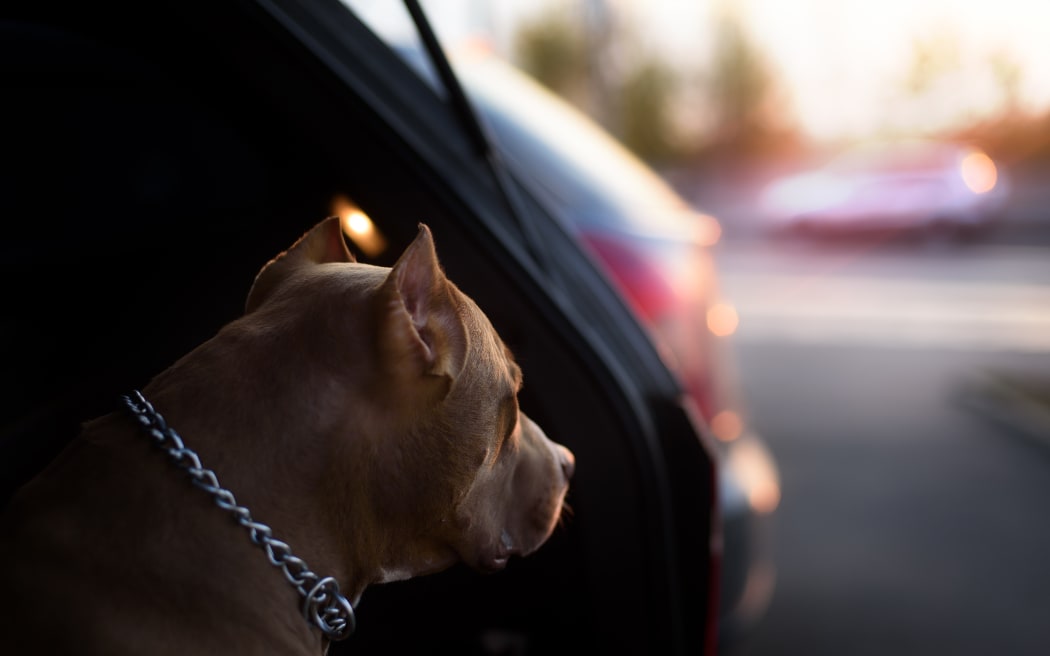
File photo. Photo: 123rf
More responsible dog ownership and a mindset change from 'my dog never would' to 'my dog could' is needed to help combat the issue of dog attacks and roaming.
Auckland Council is now double-teaming some of its dog control officers as they deal with a rising tide of abuse from dog owners.
The abuse is linked with rising dog ownership in the city - up 20 percent over the past five years - as well as surging rates of dog attacks and roaming dogs, which are often aggressive.
Council figures reveal dog attacks rose by 34 percent over the period, with attacks up 22 percent in the last year alone.
Children are often the victims.
Auckland Council's Animal Management manager Elly Waitoa told Morning Report more than 12,000 complaints had been made in the last calendar year, putting "significant strain" on staff.
It has recent increased its Animal Management staff by eight workers to deal with the increased work-load and allow staff to work in twos in high-risk areas.
"The violence and aggression in the community, we definitely have seen an increase over the past few years so it's just about keeping our staff safe and ensuring that in our most at-risk areas that they are able to line two up."
Waitoa said most dog attacks occurred on or near the dog's property - with children often being the victim.
"We see far too many attacks where children become the victim, often where they are in groups, at somebody's house, and the dog comes out, gets overstimulated and attacks."
Auckland Council said a recent study by Starship Foundation said Māori and Pasifika were "far out-represented as victims of dog attacks compared to all other ethnicities combined".
"The study showed Māori as being more than 2.5 times more likely to be attacked by dogs than non-Māori, and Pasifika people 1.6 times more likely than non-Pasifika.
"The study also identified that according to ACC records for dog bite injuries in Auckland only around 20 percent of dog attacks are reported to council."
In terms of roaming dogs, Waitoa said they can go on to attack domestic animals like cats, other dogs being walked, and sometimes people.
Covid-19 lockdowns had seen a lot of people get dogs as they thought it was a good time to do it, she said.
Around 132,000 dogs are registered in Auckland, but the actual number is likely to be double this.
"Unfortunately, a lot of those dogs haven't been desexed so we are seeing this increase in dog population coming through so that's really a part of the reason.
"The roaming comes down to irresponsible dog ownership. No one should be allowing their dog to freely roam, they get into all sorts of trouble when they're out - whether they are attacking stock, cats, hit by cars, attacking somebody else's dog or potentially getting attacked themselves."
The cost-of-living crisis "definitely" had a flow-on effect of people not getting their dogs desexed and/or registered, Waitoa said - and there was also a shortage of vets in the city.
But Waitoa said communities needed to get on board to help prevent some issues, and call out neighbours or family if they saw them allowing their dogs to roam free.
A mindset change was also needed from "my dog would never" to "my dog would potentially attack if the circumstances arose", Waitoa said.
"Our shelters are full of dogs belonging to people with the mindset that their dog would never do something like that and unfortunately, that isn't the reality."
According to Auckland Council, American pit bull terriers represents 3.1 percent of the total dog population in Auckland, but accounts for 18 percent of all impounds.
They are impounded for involvement in 28 per cent of all attacks, 41 percent of all rushing incidents, and 16 percent of all roaming and pick up incidents/requests.
Staffordshire bull terriers represent 5.8 percent of Auckland's total dog population, and accounts for 19 percent of all impounds.
They are impounded for being involved in 15 percent of all attacks, 15 percent of all rushing incidents, and 20 percent of all roaming and pick up incidents/requests.
Support and financial assistance from central government would help with the issue, Waitoa said, to allow free desexing in poorer communities where attacks and aggression from dogs was more likely.
A multi-agency approach to work with the community and educate them was needed to make a societal change, she said.





